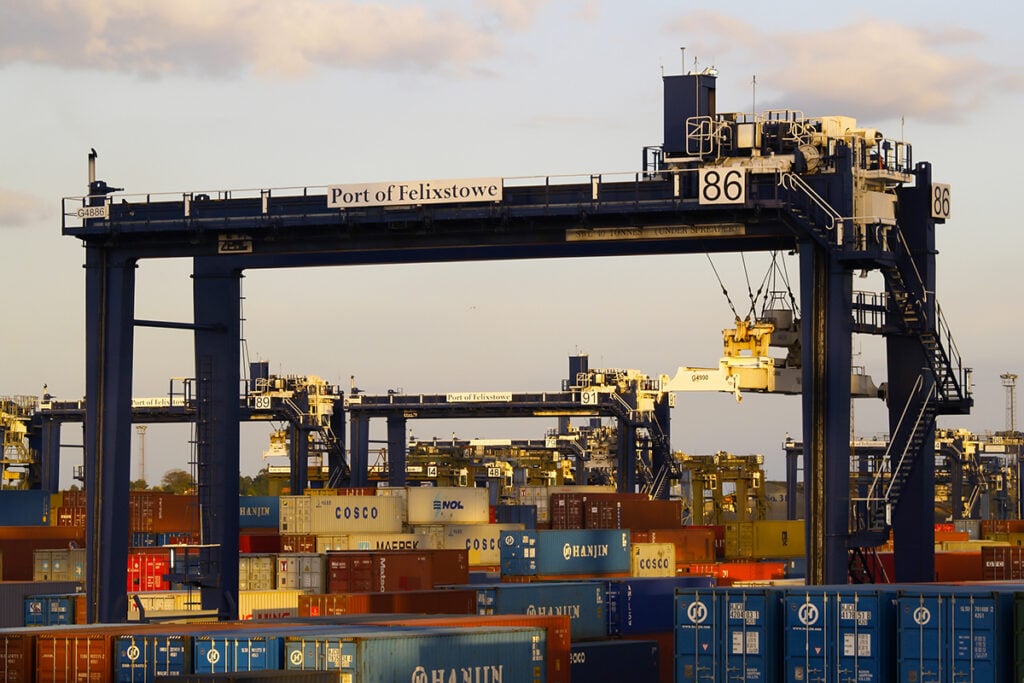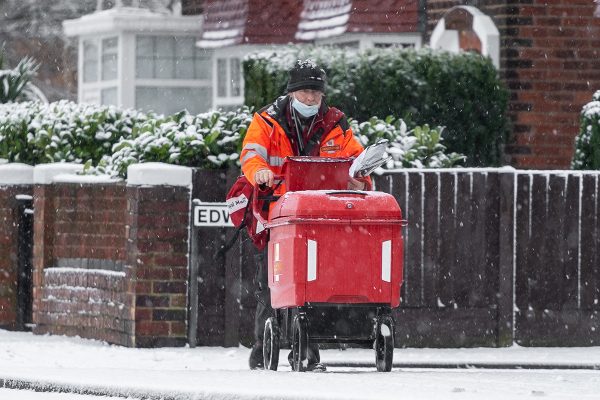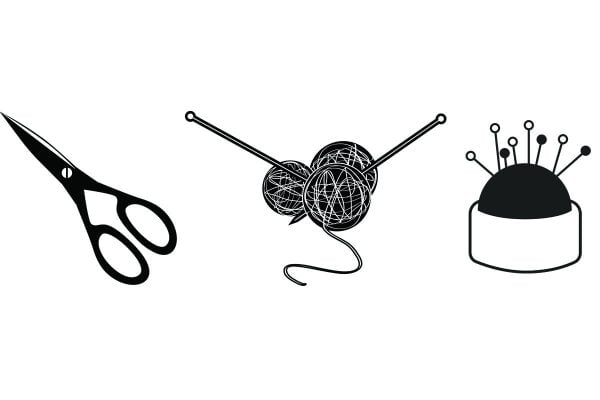 Following the news this morning that the ships are diverting from Felixstowe to European ports due to a logjam of containers that simply aren’t moving on to their destinations, Rory O’Connor, CEO and founder of Scurri, takes a look at the supply chain and challenges that face retailers this Christmas.
Following the news this morning that the ships are diverting from Felixstowe to European ports due to a logjam of containers that simply aren’t moving on to their destinations, Rory O’Connor, CEO and founder of Scurri, takes a look at the supply chain and challenges that face retailers this Christmas.
As Christmas draws nearer, it has become increasingly apparent that this may not be a normal seasonal period for many shoppers and retailers. The news has regularly described these events as a ‘perfect storm’, but what exactly are the elements at play leading to the supply chain crisis we are looking at this Christmas? It truly is a series of things, and blame cannot fall in one area – even COVID seems to be a small part of a much bigger and complex issue. COVID, labour shortages, historical underinvestment in the delivery and supply industry, Chinese manufacturing issues and the contentious Northern Ireland Protocol do not paint a pleasant picture for retailers and shoppers this coming Christmas.
The fractures in the global supply chain have been magnified over the last 18 months. We have witnessed how fragile our current operations are and that one disruption has mass ripple effects – take the Suez Canal blockage in March of this year, when the Ever Given container ship became stuck on the main shipping route. The fallout from that caused chaos, and it did not end there. More recently we have seen China’s idle factories create concern that electronic devices will not be available in time for peak retail season.
Factories throughout China have been left idle or production is running at a decreased rate, due to environmental concerns. These factories were shut down due to power cuts implemented in order to meet official energy use targets, after the quota enforced was used more quickly than expected. Companies impacted include Apple, Tesla, Microsoft, and HP. Disruptions to Apple mean that many customers hoping for the iPhone 13 this Christmas may be disappointed, and smartphones are not the sole item that may be unavailable.
While these concerns are felt globally, three parties – the UK, Northern Ireland and Ireland – have the additional complicating factor of the Northern Ireland Protocol. While implemented to prevent a hard border, this protocol has been a source of pain for retailers and suppliers on all ends. The UK has asked the EU again to alter the terms of the agreement they had signed, but almost a year on the situation does not look to be improving for trade – and this is only one area of concern.
While COVID is not the direct source of the current crisis, it could be seen as the catalyst. Covid-19 had seen no new British truck drivers trained within the past 12 months, while changes in the rules of self-employment resulted in a 25% increase in agency driver charges. COVID has escalated the appearance of cracks in the delivery and logistics sector – however, issues with shortages in drivers can be linked back well prior to COVID-19 and the backlog of driving tests. A stigma had been created around the profession, with reports dating well before the pandemic citing work conditions and poor regulation for the lack of desire to become a delivery driver.
It was the backlog of tests and uncertainty with lockdowns that truly highlighted this already apparent problem, combined with a lack of foreign workers as a result of Brexit. The Road Hauler Association (RHA) announced several weeks ago that the UK currently faces a shortage of 100,000 truck drivers. This is not a problem that looks to be solved quickly, and it is not limited to the UK. The short term solution planned by the UK government to issue temporary issues to EU drivers to manage the shortage over the Christmas period before sending them on their way is almost a direct contradiction of the Brexit agreement reached, and a more permanent resolution must be found.
Driver shortages are not an explicitly UK problem, and similarly it is not the only area in the supply chain where we are witnessing staffing shortages. Due to COVID, it has been reported that ports worldwide are working at 50% capacity due to social distancing measures in place, meaning slower processing times from the outset.
We have already seen the implications of this disaster – shortages in a wide selection of sectors have made recent headlines, such as the petrol shortage causing mile-long queues outside petrol stations. It is difficult to offer a solution to such an array of complex problems that are bigger than the retailers themselves. Larger companies, such as IKEA, have the luxury of combating rising shipping costs and delays by investing in their own freights to ensure deliveries are made on time. For smaller retailers, those who have placed time and effort into securing the best supply chain possible will fare best but a large amount is out of their control.
For customers, the best advice is to buy earlier but also to be prepared for what we are going to see. There will be inevitable stock shortages, delays and price increases across food and material goods. Retailers can expect panic and bulk buying but customers should restrain from doing so – there will not be no choice, only less. We can look forward to regulation and the world returning to a normal pace lessening these problems down the line, and while there is no permanent solution at present, it is also not a permanent problem.










One Response
Doubt many UK marketplace sellers have got £15K to drop shipping a 40ft container in this market.
Seems like alot of extra work for nothing to me. RISK REWARD MAKES NO SENSE AT ALL!
Rather than the work for pennies on the £ now.
I see Chinese traders have loads of stock thou, so at least some are okay.